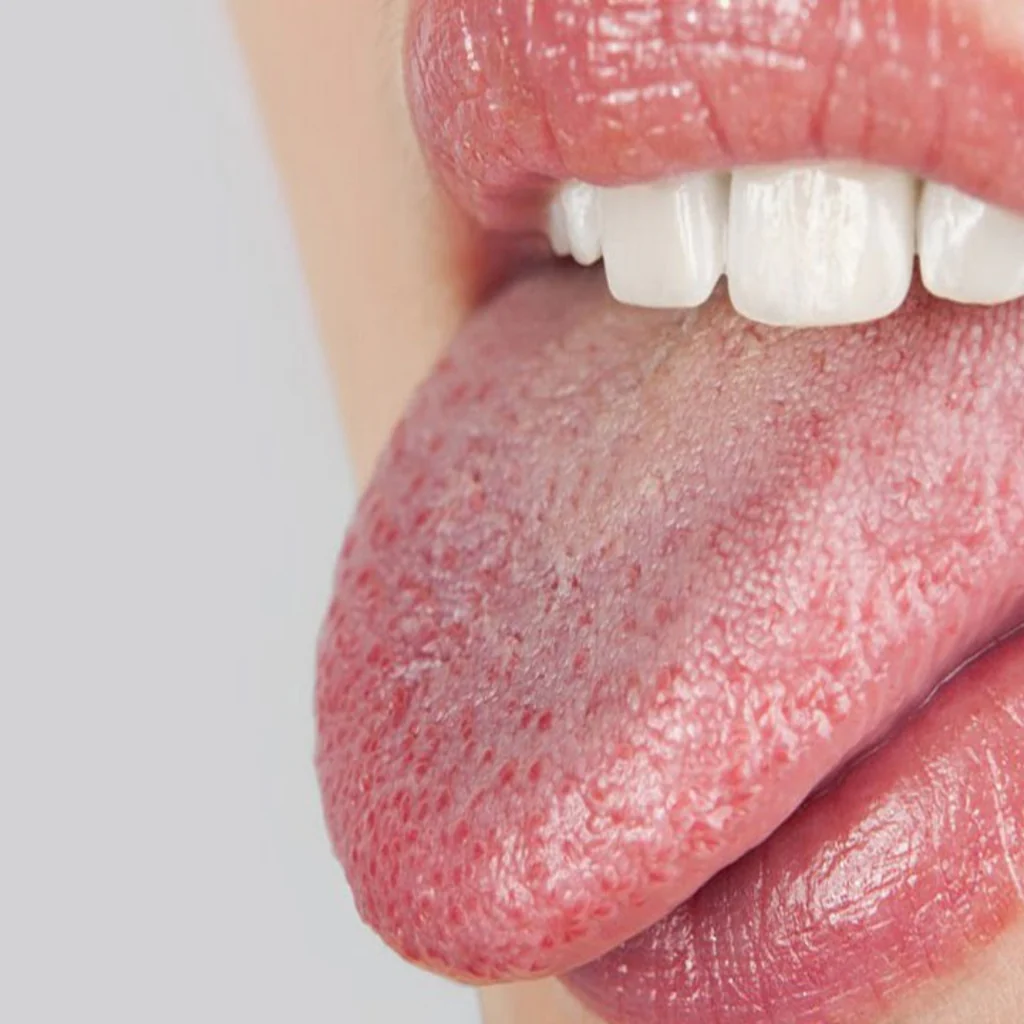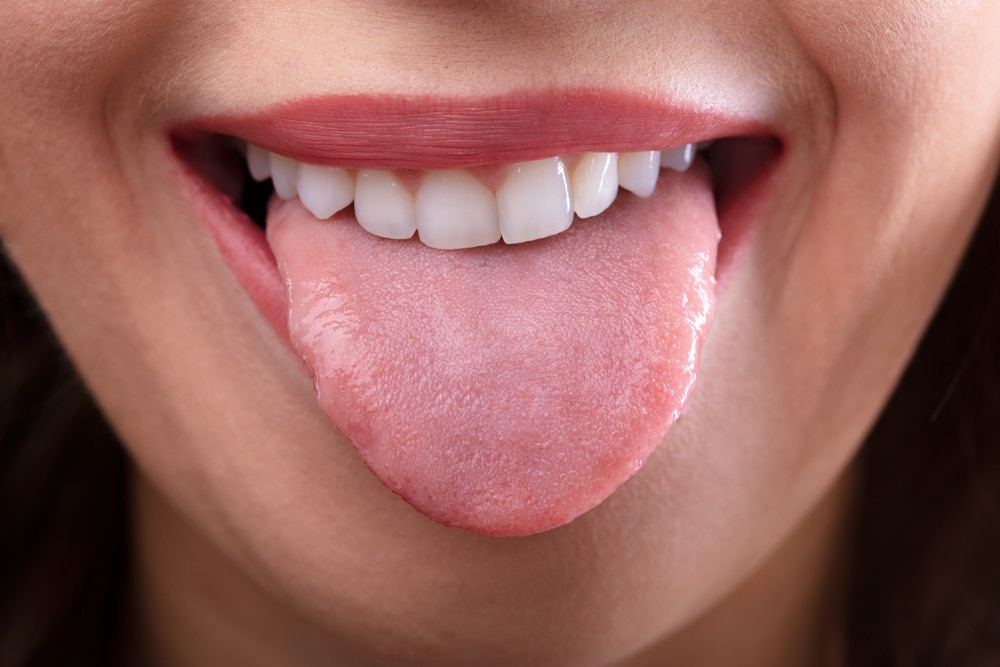Does diabetes cause dry mouth? Yes, dry mouth and diabetes are closely linked. Many individuals with diabetes experience dry mouth, also known as xerostomia. This condition occurs due to several factors, including high blood sugar levels, dehydration, and the impact of diabetes on the salivary glands. When blood sugar levels are poorly controlled, the body tends to lose more fluids, leading to dehydration and reduced saliva production.
Saliva plays a critical role in maintaining oral health by helping to wash away food particles, neutralize acids, and prevent infection. Without sufficient saliva, the mouth becomes dry, increasing the risk of oral health issues like gum disease, cavities, and mouth infections.
To prevent these complications, individuals with diabetes need to manage their blood sugar levels effectively and stay hydrated. Regular dental check-ups, along with good oral hygiene practices, can help minimize the risk of diabetes dry mouth symptoms and maintain overall oral health.
Discover in this article how to manage dry mouth effectively and protect your oral health while living with diabetes.
What is Dry Mouth?
Dry mouth, also known as xerostomia, occurs when there is insufficient saliva production in the mouth. Saliva plays a crucial role in maintaining oral health by keeping the mouth moist, aiding in digestion, and preventing bacterial growth.
Without enough saliva, individuals may experience symptoms like a dry, sticky feeling in the mouth, difficulty swallowing, cracked lips, and even bad breath. While it can occur due to various causes such as dehydration, medications, or autoimmune conditions, it is especially common in people with diabetes due to its impact on blood sugar levels and hydration.
Is Dry Mouth a Sign of Diabetes?
Is dry mouth a symptom of diabetes? Yes, dry mouth is a common sign of both diagnosed and undiagnosed diabetes. This condition, also known as xerostomia, occurs when blood sugar levels are poorly controlled, leading to reduced saliva production. As a result, the mouth becomes persistently dry, making it difficult to speak, chew, or swallow.
Other symptoms often associated with diabetic dry mouth include:
- Increased thirst and urination, as the body works to flush out excess sugar
- Fatigue and blurred vision, which occur as the body struggles to regulate blood sugar
- Dry lips, often cracked or peeling, a common side effect of reduced saliva
- For some individuals, dry mouth at night becomes particularly bothersome, disrupting sleep and leading to discomfort
The connection between dry mouth and diabetes stems from the body’s response to high blood sugar, which leads to dehydration and reduced saliva production. If you experience these symptoms, it’s important to manage blood sugar levels effectively and seek medical advice.
Addressing dry mouth early can help prevent further oral health issues like gum disease and cavities. Regular dental check-ups and proper hydration can also help alleviate symptoms and improve overall oral health.

Why Does Diabetes Cause Dry Mouth?
Diabetes contributes to dry mouth in several ways, and understanding these connections is essential for managing the condition effectively.
High Blood Sugar
High blood sugar is one of the primary causes of dry mouth in individuals with diabetes. When blood glucose levels rise, the body pulls moisture from various tissues, including those in the mouth.
This results in reduced saliva production, leading to a dry mouth. Additionally, the body’s attempt to flush out excess sugar through frequent urination further dehydrates the body, worsening the condition.
Medication Side Effects
Certain medications used to manage diabetes, such as metformin, can cause dry mouth as a side effect.
These medications can either directly impact saliva production or exacerbate existing dryness, making it important to discuss any new or ongoing symptoms with a healthcare provider.
Salivary Gland Dysfunction
How does diabetes affect salivary glands? Diabetes can impair the function of the salivary glands, reducing their ability to produce enough saliva. This is especially true in people with poorly controlled blood sugar levels, as fluctuating glucose can affect glandular function.
Reduced saliva can lead to difficulty swallowing, speaking, or eating, along with increased risk of oral infections.
Dehydration
Frequent urination caused by high blood sugar levels leads to dehydration, further contributing to dry mouth. Dehydration exacerbates the lack of saliva, making it difficult for individuals to maintain proper oral health.
What Does Diabetic Dry Mouth Feel Like?
What does diabetic dry mouth feel like? People with diabetic dry mouth (xerostomia) often describe it as a persistent feeling of dryness in the mouth and throat. This discomfort is typically accompanied by difficulty chewing, swallowing, or speaking due to the lack of saliva.
Other symptoms include:
- A dry, sticky feeling in the mouth that does not improve with drinking water
- Dry lips, often accompanied by chapping or cracking, particularly around the corners
- Cracked corners of the mouth, which can be painful and prone to infection
- A rough, dry tongue, which may become sensitive and cause difficulty in tasting food or speaking
- Increased thirst due to the dehydration caused by reduced saliva production
- A sore throat, which can be aggravated by the lack of moisture in the mouth
These symptoms can lead to discomfort and an increased risk of oral health issues such as gum disease and tooth decay. Proper diabetes management, hydration, and regular dental checkups are essential for managing diabetic dry mouth.
Can Diabetes Medications Cause Dry Mouth?
Does diabetes medication cause dry mouth? Yes, some medications, including metformin, can lead to dryness. Patients may notice dry mouth hypoglycemia symptoms if their blood sugar drops too low, causing dehydration and salivary gland stress.
Does Type 2 Diabetes Cause Dry Mouth?
Does type 2 diabetes cause dry mouth? Yes, individuals with type 2 diabetes often report this condition due to fluctuating blood sugar levels and medication side effects. Similarly, does type 1 diabetes cause dry mouth? Yes, type 1 diabetes can also lead to dry mouth through similar mechanisms.
Does Gestational Diabetes Cause Dry Mouth?
Does gestational diabetes cause dry mouth? Yes, gestational diabetes can result in dry mouth due to the hormonal changes and blood sugar fluctuations during pregnancy. Pregnant individuals should seek guidance if they experience dry mouth at night diabetes symptoms.

How to Stop Dry Mouth with Diabetes?
Managing diabetes dry mouth symptoms involves addressing the underlying causes and implementing the following strategies:
Control Blood Sugar Levels
Maintaining stable blood sugar is key to preventing dry mouth and blood sugar fluctuations. Regular monitoring and adherence to treatment plans help minimize dryness.
Stay Hydrated
Drink plenty of water throughout the day to counteract the dehydration caused by high blood sugar.
Practice Good Oral Hygiene
Brush and floss regularly to prevent complications like gum disease, which can worsen in a dry mouth environment.
Use Saliva Substitutes
Over-the-counter saliva substitutes or sugar-free lozenges can help alleviate symptoms of dry mouth diabetic diabetes tongue and improve comfort.
Discuss Medications with Your Doctor
If medications like metformin worsen symptoms, ask your healthcare provider about alternative options.
How Does Dry Mouth Affect Overall Health?
Dry mouth and diabetes are not just inconvenient—they can lead to complications:
- Increased risk of gum disease and tooth decay.
- Difficulty wearing dentures due to dryness.
- Mouth infections, such as thrush.
Conclusion
Does diabetes cause dry mouth? Yes, diabetes is a significant contributor to dry mouth due to high blood sugar, medication side effects, and salivary gland dysfunction. Left unmanaged, it can lead to oral health complications and impact quality of life.
By controlling blood sugar, staying hydrated, and practicing good oral hygiene, individuals can reduce diabetes dry mouth symptoms and improve overall health. If dryness persists, consult your healthcare provider for personalized treatment options.
FAQs
Why is my mouth dry even though I drink a lot of water?
Drinking water may not resolve diabetes dry throat symptoms if blood sugar levels remain uncontrolled.
Can too much sugar cause a dry mouth?
Yes, excessive sugar consumption can lead to dehydration, contributing to dry mouth symptoms.
What are the 10 warning signs of diabetes?
Dry mouth, increased thirst, frequent urination, blurred vision, fatigue, and unexplained weight loss are among the top symptoms.
What does a diabetic dry mouth feel like?
It often feels like a persistent dryness with symptoms like cracked lips, a rough tongue, and trouble swallowing or speaking.
Does prediabetes cause dry mouth?
Yes, prediabetes dry mouth can occur due to blood sugar fluctuations that stress the body’s hydration levels.
Can low blood sugar cause dry mouth?
Yes, low blood sugar dry mouth may happen if hypoglycemia triggers dehydration.
Does metformin cause dry mouth at night?
Metformin can cause dry mouth at night diabetes symptoms in some individuals.
How does diabetes affect salivary glands?
Diabetes can reduce salivary gland function, leading to decreased saliva production and persistent dryness.
Does eating a lot of sugar make your mouth dry?
Yes, excessive sugar consumption can lead to temporary dry mouth by altering hydration levels and promoting dehydration.
What can cause dry mouth but no diabetes?
Other causes include certain medications, dehydration, and autoimmune conditions like Sjögren’s syndrome.




